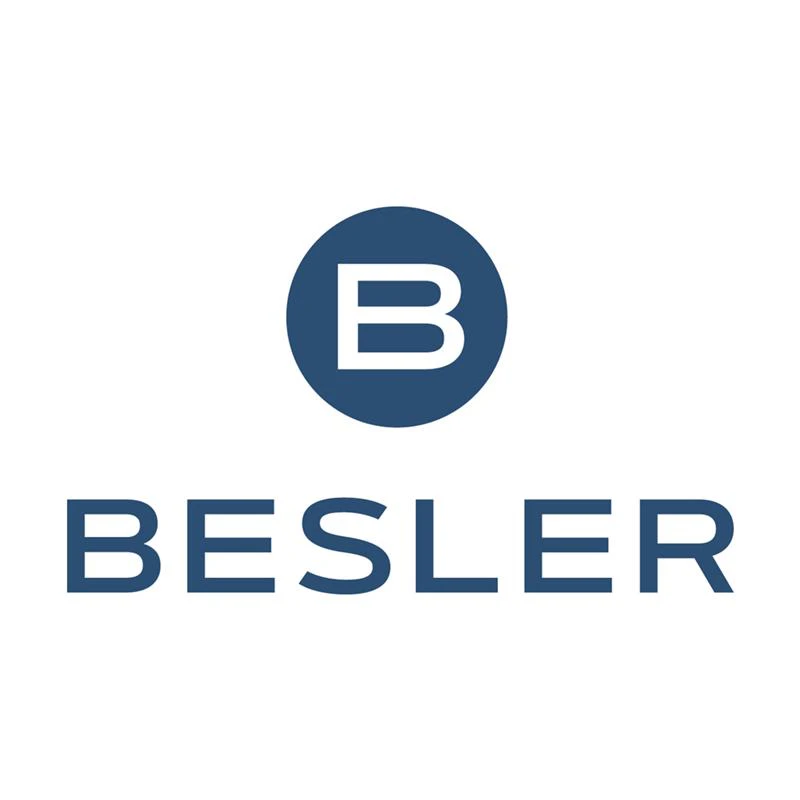What’s new in 340B: The latest legal and legislative battles
More drug manufacturers are changing their policies to restrict 340B drug pricing. Find out how it’s impacting your organization and what you can do.
Oct 20, 2025
Oct 20, 2025

The dispute between safety-net hospitals and drug manufacturers has officially entered its fourth year, and we continue to see additional manufacturers fall in line with revising their policies to restrict 340B Program pricing for drugs dispensed through contract pharmacies.
Currently, there are 39 drug manufacturers that have imposed distribution limitations on covered outpatient drugs dispensed through the 340B Program:
In response to the restrictions, 20 states have passed legislation to prohibit drug companies from restricting access to 340B Program pricing through contract pharmacies:
- Arkansas
- Colorado
- Hawaii
- Kansas
- Louisiana
- Maine
- Maryland
- Minnesota
- Mississippi
- Missouri
- Nebraska
- North Dakota
- Oklahoma
- Oregon
- Rhode Island
- South Dakota
- Tennessee
- Utah
- Vermont
- West Virginia
Below is a summary of the current legal and legislative battles affecting the 340B Program and considerations for how your organization can respond to these changes. You can catch up on Kodiak’s other recent 340B updates here and here.
Manufacturer updates
Sept. 9: Mitsubishi Tanabe Pharma America imposes new contract pharmacy policy
Beginning Oct. 1, Mitsubishi Tanabe Pharma America will restrict access to drugs dispensed through contract pharmacies by covered entities. The restrictive policy will apply to Radicava ORS (edaravone). The company is limiting covered entities to designate a single contract pharmacy location to dispense the drug to patients. The designated contract pharmacy must be part of MTPA’s limited distribution network for Radicava ORS or a specialty pharmacy under common ownership with the covered entity and listed as a contract pharmacy in the 340B Office of Pharmacy Affairs Information System database. Covered entities will need to designate a contract pharmacy location through the 340B ESP platform by Sept. 20, 2025, and will be required to submit contract pharmacy claims data to ESP.
Oct. 1: Bausch Health withdraws from the 340B Program
Beginning Oct. 1, 2025, Bausch Health will withdraw from the Medicaid Drug Rebate Program and the 340B Program, and all Bausch Health drugs will no longer be considered covered outpatient drugs. Bausch has communicated that it will maintain access to Medicaid patients for its drugs through its patient assistance program.
Legislative updates
Following are key 340B-related legislative actions that have occurred since May and considerations for healthcare organizations for how to prepare for and respond to the changes.
June 20: Maine enacts contract pharmacy protections
Maine’s Gov. Janet Mills signed legislation protecting covered entities’ access to 340B pricing on drugs dispensed at contract pharmacies. The law prohibits drug companies or third parties working on their behalf from denying or restricting the acquisition or delivery of 340B drugs for a Maine covered entity or any of its contract pharmacies in the state. The law bans drugmakers from requiring covered entities to submit claims data or utilization data as a condition of receiving 340B drugs.
The Maine law expands 340B hospital reporting requirements the state first enacted in 2023. Hospitals in Maine currently provide annual 340B reports to the Maine Health Data Organization. These reports include data such as an annual estimated 340B savings based on group purchasing organization pricing or another available pricing source, acquisition costs and savings for the top three most-prescribed 340B drugs, and descriptions of how hospitals use their savings for patient care. Under the mandate’s expansion, Maine hospitals will continue to submit that information and must report additional data, including aggregated acquisition costs, payments received, and numbers of pricing units for all 340B drugs dispensed by hospitals and child sites, broken down by payor type and National Drug Code.
June 21: Rhode Island enacts contract pharmacy protections
Rhode Island’s Gov. Dan McKee signed legislation protecting covered entities’ access to 340B pricing on drugs dispensed at contract pharmacies. The law prohibits drug companies or third parties working on their behalf from denying or restricting the acquisition or delivery of 340B drugs for a Rhode Island covered entity or any of its contract pharmacies in the state.
The law also bans drugmakers from requiring covered entities to submit claims data as a condition of receiving 340B drugs. The bill also includes language barring pharmacy benefit managers, health insurers, and other third-party payors from imposing discriminatory payment provisions on Rhode Island covered entities based solely on their 340B status.
June 30: Federal court rejects drugmaker’s request to block contract pharmacy protections
A federal court in Tennessee denied a request by AbbVie to halt enforcement of the state’s recently enacted 340B contract pharmacy protection law. The decision from the U.S. District Court for the Middle District of Tennessee Nashville Division denied AbbVie’s request for a preliminary injunction that would have stopped the state from being able to enforce the contract pharmacy law (S.B. 1414) that went into effect July 1, 2025. The decision stated that AbbVie had not shown “a substantial likelihood of success on the merits” of its claims.
July 1: Ohio mandates 340B reporting from covered entities
Ohio’s Gov. Mike DeWine signed legislation requiring 340B covered entities to submit annual reports to the state related to 340B drug acquisition costs, payments received, and the use of their savings. The law took effect July 1, 2025, and made Ohio the 10th state to mandate reporting requirements related to the 340B Program. Other states include Colorado, Hawaii, Idaho, Indiana, Maine, Minnesota, Rhode Island, Vermont, and Washington. The Ohio law requires covered entities to break down the drug cost, drug payment, and sliding fee scale information by payor type. Each covered entity and each child site must submit an annual report, and the Ohio Department of Health will post the information it receives from the reports on its public website.
July 31: HRSA announces 340B rebate pilot program in 2026
The Health Resources and Services Administration announced it is inviting drug companies to apply for a voluntary, limited pilot program that will allow them to replace up-front 340B discounts with back-end rebates on the 10 drugs that will be subject to Medicare Part D price caps starting in 2026. HRSA said it intends to test the viability of a rebate model under which covered entities would buy drugs at wholesale acquisition cost, submit rebate claims to drugmakers for drugs they dispense to eligible 340B patients, and receive rebates for the difference between the wholesale acquisition cost and the 340B price.
Sept. 23: Federal court rejects drugmaker request to block contract pharmacy protections
A federal court in Maine denied a request by Novartis and AbbVie to halt enforcement of the state’s recently enacted 340B contract pharmacy protection law. The decision from the U.S. District Court for the District of Maine denied the drug companies’ request for a preliminary injunction that would have stopped the state from being able to enforce the contract pharmacy law that went into effect July 1, 2025. The decision stated that AbbVie and Novartis had not shown they were likely to succeed in their constitutional challenges to the law.
Sept. 30: Federal court rejects drugmaker request to block contract pharmacy protections
A federal court in Rhode Island denied a request by Novartis and AbbVie to halt enforcement of the state’s recently enacted 340B contract pharmacy protection law. The decision from the U.S. District Court for the District of Rhode Island denied the drug companies’ request for a preliminary injunction that would have stopped the state from being able to enforce the contract pharmacy law that went into effect Oct. 1, 2025. The decision stated that AbbVie and Novartis had not shown they were likely to succeed in their constitutional challenges to the law.
Considerations for healthcare organizations
- Engage internal and/or external legal counsel to assess legal implications of each manufacturer’s exception policy and the risks associated with sharing data with manufacturers. Assess prescription claims data to determine the impact of these manufacturers’ limited distribution models on your 340B Program savings over the past year.
- File overcharge notices with HRSA for manufacturers who charge more than the ceiling price for a covered outpatient drug. Apexus has provided a template for submitting overcharges, which can be found here.
- Continue advocacy and education efforts around how your covered entity is meeting the true intent of the 340B Program by using savings generated from purchasing discounted drugs to provide comprehensive care to more patients within your community.
- Help raise awareness of the financial impact to your organization from drug company restrictions on contract pharmacies by sharing financial impact data with your elected officials in Washington. Urge them to push for an end to these drug company actions.
- Use social media platforms and/or consider working with your local media to create an opinion piece from your organization regarding the impact manufacturer actions have had on prescription drug savings and your organization’s ability to serve patients. Correlate how 340B benefit loss affects patient care and healthcare service offerings.
There’s a lot to keep track of with 340B. If you have questions about the information in this article, or if Kodiak can assist you with managing your 340B compliance program, please reach out to Susan Brankin.
Contact Us
Want the latest updates from Kodiak?
Get access to our communications, including our Healthcare Connection newsletter, to tap into industry trends, CPE webinars, and more.



